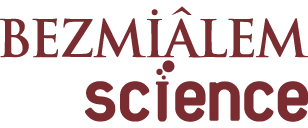ÖZET
Amaç:
Bu çalışmanın amacı Bakım Verme Yeterliliği Ölçeği’nin (BVYÖ) Türkçe’ye uyarlanması ile kültürel ve psikometrik özelliklerinin değerlendirilmesidir.
Yöntemler:
BVYÖ-Türkçe formu (BVYÖ-TF) inmeli hastalara bakım veren 337 aile üyesinden oluşan bir örneklemde test edildi. Yapı geçerliliği için açıklayıcı ve doğrulayıcı faktör analizi yapılmıştır. Güvenilirlik için, madde-toplam puan korelasyonları, Cronbach Alpha değeri ve iki yarı testi hesaplandı. Ölçek puanı 4-16 puandır.
Bulgular:
Bakım veren aile üyelerinin yaş ortalamasının 47,48±14,52 ve inmeli hastalarının yaş ortalamasının ise 70,34±12,04 olduğu bulunmuştur. Uzman görüşleri doğrultusunda ölçeğin kapsam geçerlilik indeks puanı (S-CVI) 0,83’tür. Doğrulayıcı faktör analizi sonucunda, tek faktörlü yapının iyi bir uyum sağladığı görülmüştür. Cronbach Alpha değeri 0,83 iken, iki yarı güvenirlilik değerinin r=0,82 olduğu belirtilmiştir. Ölçeğin toplam puanı 11,5±1,74 bulunmuştur.
Sonuç:
Çalışmada BVYÖ-TF’nin geçerlik ve güvenirlik değerlerinin yüksek olduğu bulunmuştur. Ölçeğin güvenle kullanılabileceği ortaya konulmuştur BVYÖ’nün farklı dillerde mevcut olması karşılaştırmalı çalışmalar yapmak için avantaj sağlamıştır.



